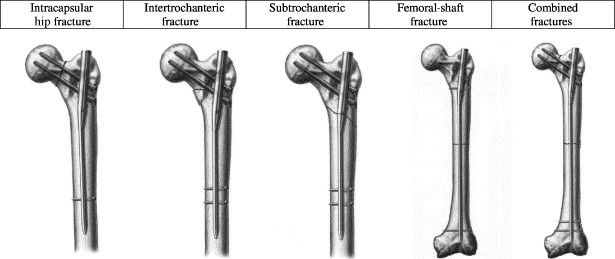
Diabetic Diet: What to eat and what to avoid.
- avik sikdar

- 4 days ago
- 3 min read
Managing diabetes goes beyond just medications — a well-balanced diet plays a crucial role in keeping blood glucose levels stable and preventing complications. A "diabetic diet" is not about deprivation; it's about making smart, healthy food choices that nourish the body and help maintain energy levels throughout the day. Here’s a comprehensive guide to help individuals with diabetes understand what to eat and what to avoid.
What is a Diabetic Diet?
A diabetic diet focuses on foods that help manage blood sugar, blood pressure, and cholesterol levels while maintaining a healthy weight. It is rich in nutrients, low in calories, and emphasizes whole, unprocessed foods.
✅ What to Eat: Healthy Choices for Diabetics
1. Whole Grains
Examples: Brown rice, quinoa, whole wheat, oats, millets (ragi, bajra)
Why: They contain complex carbohydrates and fiber, which slow down the release of glucose into the bloodstream.
2. Non-Starchy Vegetables
Examples: Spinach, broccoli, carrots, bell peppers, cucumbers, cauliflower
Why: Low in calories and carbohydrates, high in fiber, vitamins, and minerals.
3. Lean Proteins
Examples: Skinless chicken, turkey, fish (especially fatty fish like salmon), eggs, tofu, legumes, lentils
Why: Helps keep you full without spiking blood sugar.
4. Healthy Fats
Examples: Avocados, nuts, seeds (chia, flax), olive oil, fatty fish
Why: Supports heart health, which is crucial for diabetics.
5. Low-Fat Dairy or Dairy Alternatives
Examples: Low-fat milk, unsweetened yogurt, almond milk, soy milk
Why: Provides calcium and protein without excessive saturated fat or sugar.
6. Fruits in Moderation
Examples: Apples, berries, guava, papaya, oranges
Why: Natural sugars are paired with fiber and nutrients, but portion control is key.
7. Legumes and Pulses
Examples: Chickpeas, kidney beans, moong dal, chana dal
Why: Excellent plant-based protein and fiber sources with a low glycemic index.
❌ What to Avoid: Foods That Spike Blood Sugar
1. Refined Carbohydrates and Sugary Foods
Examples: White bread, white rice, pastries, sweets, cookies, candies, sugary breakfast cereals
Why: These cause rapid spikes in blood sugar and contribute to weight gain.
2. Sweetened Beverages
Examples: Regular soda, fruit juices, sweetened tea or coffee, energy drinks
Why: Contain high levels of added sugar and no nutritional value.
3. Trans Fats and Saturated Fats
Examples: Fried foods, packaged snacks, processed meats, margarine
Why: Increase the risk of heart disease, which is already higher in diabetics.
4. Full-Fat Dairy Products
Examples: Whole milk, full-fat cheese, butter
Why: High in saturated fats which may negatively impact insulin sensitivity.
5. Alcohol (in excess)
Why: Can cause both high and low blood sugar and interfere with medications.
6. High-Sodium Foods
Examples: Pickles, canned soups, processed meats, chips
Why: Increases blood pressure, which is a common comorbidity in diabetes.
🧠 Smart Eating Tips for Diabetics
Follow the Plate Method: Fill half your plate with non-starchy vegetables, one-quarter with lean protein, and one-quarter with whole grains or complex carbs.
Watch Your Portions: Overeating even healthy foods can raise blood sugar.
Eat Regular Meals: Avoid long gaps between meals to prevent blood sugar dips.
Monitor Carbohydrates: Spread your carb intake evenly throughout the day.
Read Labels: Check for hidden sugars and unhealthy fats.
Stay Hydrated: Water is the best beverage choice.
🥗 Sample One-Day Diabetic Meal Plan
Breakfast:
Oats porridge with chia seeds, topped with fresh berries
Boiled egg or tofu slice
Mid-Morning Snack:
Handful of almonds or a slice of guava
Lunch:
Grilled chicken or paneer
1 cup brown rice or 2 whole wheat chapatis
Mixed vegetable salad
Evening Snack:
Unsweetened yogurt or roasted chickpeas
Dinner:
Moong dal or lentil soup
1 multigrain roti
Steamed broccoli and carrots
Conclusion
A diabetic diet isn’t a restriction but a roadmap to a healthier lifestyle. Choosing nutrient-rich foods and avoiding processed and sugary items can help manage diabetes effectively. Always consult a registered dietitian or healthcare provider for personalized dietary advice, especially if you're on medication or insulin.
By embracing a mindful, balanced eating pattern, people with diabetes can live active, full, and vibrant lives.

.png)


Comments